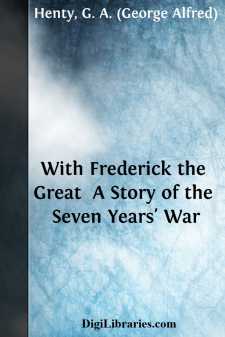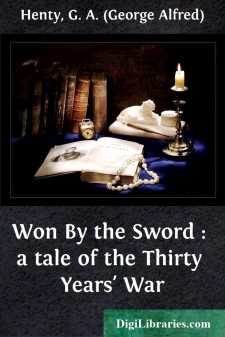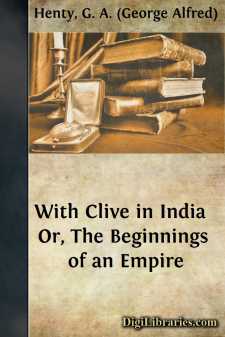Categories
- Antiques & Collectibles 13
- Architecture 36
- Art 48
- Bibles 22
- Biography & Autobiography 815
- Body, Mind & Spirit 144
- Business & Economics 28
- Children's Books 18
- Children's Fiction 14
- Computers 4
- Cooking 94
- Crafts & Hobbies 4
- Drama 346
- Education 58
- Family & Relationships 59
- Fiction 11833
- Games 19
- Gardening 17
- Health & Fitness 34
- History 1378
- House & Home 1
- Humor 147
- Juvenile Fiction 1873
- Juvenile Nonfiction 202
- Language Arts & Disciplines 89
- Law 16
- Literary Collections 686
- Literary Criticism 179
- Mathematics 13
- Medical 41
- Music 40
- Nature 179
- Non-Classifiable 1768
- Performing Arts 7
- Periodicals 1453
- Philosophy 65
- Photography 2
- Poetry 896
- Political Science 203
- Psychology 44
- Reference 154
- Religion 515
- Science 126
- Self-Help 85
- Social Science 82
- Sports & Recreation 34
- Study Aids 3
- Technology & Engineering 59
- Transportation 23
- Travel 463
- True Crime 29
Our website is made possible by displaying online advertisements to our visitors.
Please consider supporting us by disabling your ad blocker.
With Frederick the Great A Story of the Seven Years' War
Categories:
Description:
Excerpt
Among the great wars of history there are few, if any, instances of so long and successfully sustained a struggle, against enormous odds, as that of the Seven Years' War, maintained by Prussia--then a small and comparatively insignificant kingdom--against Russia, Austria, and France simultaneously, who were aided also by the forces of most of the minor principalities of Germany. The population of Prussia was not more than five millions, while that of the Allies considerably exceeded a hundred millions. Prussia could put, with the greatest efforts, but a hundred and fifty thousand men into the field, and as these were exhausted she had but small reserves to draw upon; while the Allies could, with comparatively little difficulty, put five hundred thousand men into the field, and replenish them as there was occasion. That the struggle was successfully carried on, for seven years, was due chiefly to the military genius of the king; to his indomitable perseverance; and to a resolution that no disaster could shake, no situation, although apparently hopeless, appall. Something was due also, at the commencement of the war, to the splendid discipline of the Prussian army at that time; but as comparatively few of those who fought at Lobositz could have stood in the ranks at Torgau, the quickness of the Prussian people to acquire military discipline must have been great; and this was aided by the perfect confidence they felt in their king, and the enthusiasm with which he inspired them.
Although it was not, nominally, a war for religion, the consequences were as great and important as those which arose from the Thirty Years' War. Had Prussia been crushed and divided, Protestantism would have disappeared in Germany, and the whole course of subsequent events would have been changed. The war was scarcely less important to Britain than to Prussia. Our close connection with Hanover brought us into the fray; and the weakening of France, by her efforts against Prussia, enabled us to wrest Canada from her, to crush her rising power in India, and to obtain that absolute supremacy at sea that we have never, since, lost. And yet, while every school boy knows of the battles of ancient Greece, not one in a hundred has any knowledge whatever of the momentous struggle in Germany, or has ever as much as heard the names of the memorable battles of Rossbach, Leuthen, Prague, Zorndorf, Hochkirch, and Torgau. Carlyle's great work has done much to familiarize older readers with the story; but its bulk, its fullness of detail, and still more the peculiarity of Carlyle's diction and style, place it altogether out of the category of books that can be read and enjoyed by boys.
I have therefore endeavoured to give the outlines of the struggle, for their benefit; but regret that, in a story so full of great events, I have necessarily been obliged to devote a smaller share than usual to the doings of my hero.
G. A. Henty.
Chapter 1: King and Marshal.
It was early in 1756 that a Scottish trader, from Edinburgh, entered the port of Stettin. Among the few passengers was a tall young Scotch lad, Fergus Drummond by name. Though scarcely sixteen, he stood five feet ten in height; and it was evident, from his broad shoulders and sinewy appearance, that his strength was in full proportion to his height. His father had fallen at Culloden, ten years before. The glens had been harried by Cumberland's soldiers, and the estates confiscated. His mother had fled with him to the hills; and had lived there, for some years, in the cottage of a faithful clansman, whose wife had been her nurse. Fortunately, they were sufficiently well off to be able to maintain their guests in comfort; and indeed the presents of game, fish, and other matters, frequently sent in by other members of the clan, had enabled her to feel that her maintenance was no great burden on her faithful friends.
For some years, she devoted herself to her son's education; and then, through the influence of friends at court, she obtained the grant of a small portion of her late husband's estates; and was able to live in comfort, in a position more suited to her former rank.
Fergus' life had been passed almost entirely in the open air. Accompanied by one or two companions, sons of the clansmen, he would start soon after daybreak and not return until sunset, when they would often bring back a deer from the forests, or a heavy creel of salmon or trout from the streams. His mother encouraged him in these excursions, and also in the practice of arms....












